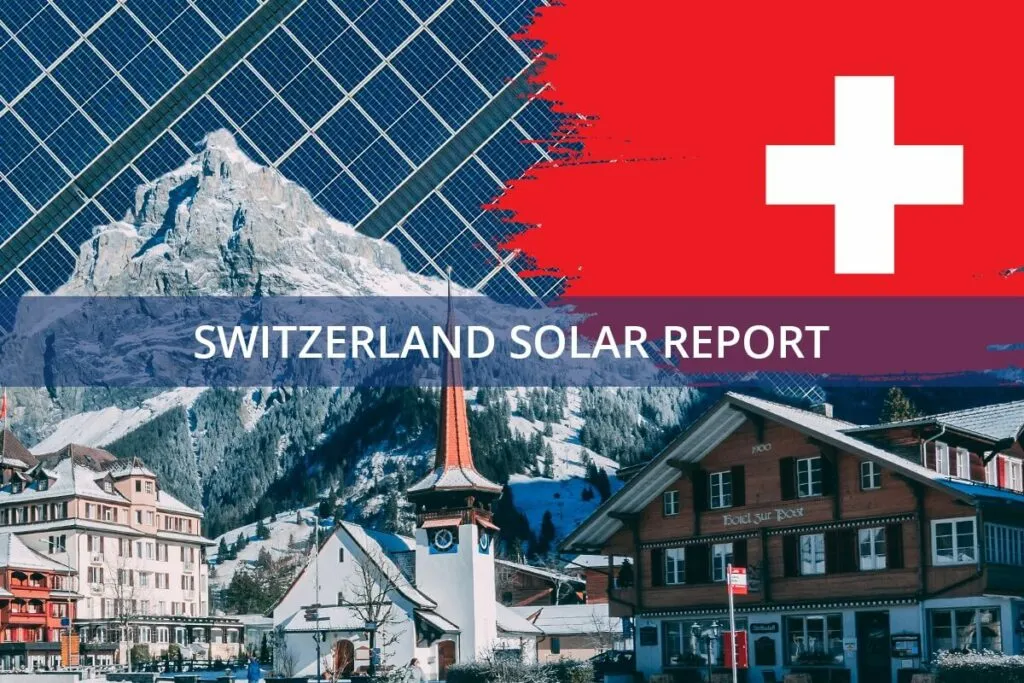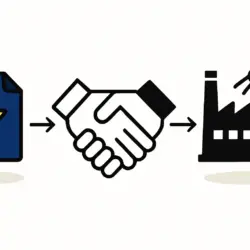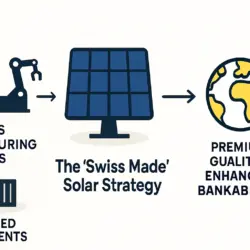Swiss Solar Slowdown After Record Growth
After a period of rapid growth, the Swiss solar industry is facing a slowdown driven by supply chain disruptions and a shortage of skilled workers. These challenges have led to significant delays in installation projects, raising concerns about Switzerland’s ability to meet its ambitious 2040 solar energy target of 24 TWh in annual production. You can read more about these targets on PVKnowhow.
Momentum Stalls After Record-Breaking Year
In 2022, Switzerland installed nearly 1 gigawatt (GW) of new solar power capacity, setting a record for the second consecutive year—an achievement that highlighted the country’s commitment to renewable energy. However, that momentum stalled in the first half of 2023, with only 285 megawatts (MW) added compared to 390 MW during the same period in 2022, according to the Swiss Solar Association (Swissolar).
Industry experts, such as Andreas Stöckli of the solar panel firm Meyer Burger, believe the slowdown is temporary, attributing it to recent global supply chain disruptions and a domestic shortage of skilled workers. Despite the current setback, Swissolar notes that the photovoltaic industry is still expanding, now comprising 1,200 businesses and employing 10,000 people.
Supply Chain and Labor Shortages Create Bottlenecks
Supply chain issues and the increasing need for skilled workers are creating key obstacles for the solar industry, with Swissolar reporting project delays of up to a year. The demand for photovoltaic training is exceptionally high, with courses booked out months in advance.
While solar installations in Switzerland traditionally accelerate during the second half of the year, experts caution this seasonal trend might not hold true in 2023. Companies have limited capacity to handle new projects, and the lead time between signing a contract and completing an installation has increased significantly. These delays pose a threat to Switzerland’s energy independence goals, as outlined in this PVKnowhow article.
Policy Adjustments and Solutions Proposed
To address these challenges, Swissolar and other industry stakeholders have proposed several policy adjustments. They recommend that the government revise the Feed-in Tariff (FiT) to better reflect the increased costs of solar installations. Simplifying the complex and time-consuming application procedures for domestic solar installations is also crucial.
Stöckli also emphasizes the importance of a more resilient and localized supply chain. The European solar industry has historically relied heavily on imports—a vulnerability highlighted by recent disruptions. As the EU implements policies to stimulate domestic solar energy production, Stöckli urges Switzerland to adopt similar measures.
Despite the current slowdown, experts remain optimistic about the long-term prospects of the Swiss solar industry. With appropriate policy adjustments and continued growth in the sector, solar energy is poised to play a vital role in Switzerland’s energy future, contributing significantly to the nation’s renewable energy transition. This optimism aligns with the ambitious 24 TWh goal outlined in this PVKnowhow article.



